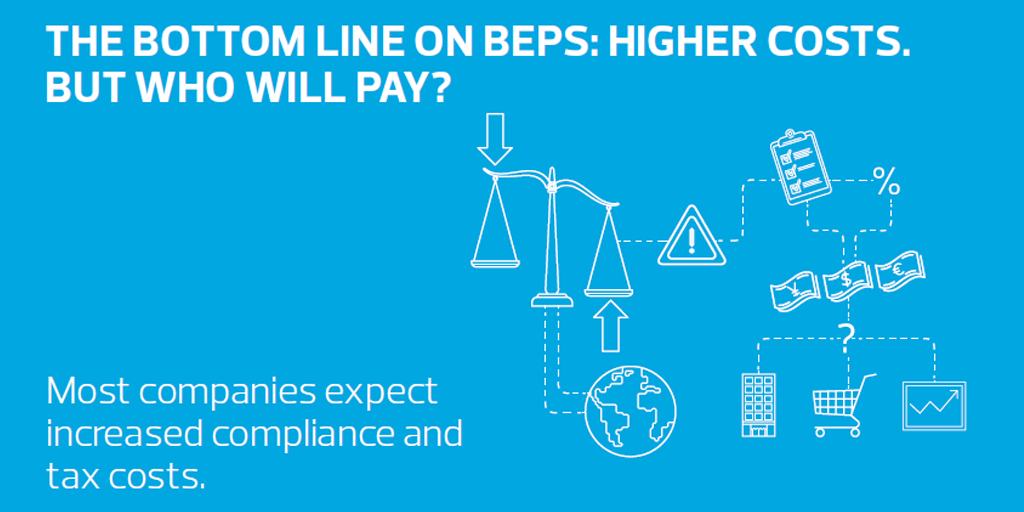
Think BEPS only affects huge multinationals? Think again.
According to a recent survey by RSM, the clampdown on corporate tax avoidance is set to hit medium-sized companies nearly as hard as their bigger rivals
Businesses expect their tax bills to rise an average of 5 per cent as a result of stricter tax rules which are being introduced on the back of efforts led by G20 countries to tackle “base erosion and profit shifting” (BEPS).
Almost three quarters of the companies surveyed said they expected a rise. Nearly one third said they expected the increase to be more than 10 percent.
The crackdown on BEPS has been led by the Organisation for Economic Co-operation and Development (OECD) which concluded that governments were losing between 4 and 10 per cent ($100bn and $240bn) of corporate tax revenues every year.
The OECD has suggested that the greatest risk of BEPS lies with large multinationals, but the RSM survey found the smaller companies believed they would be affected by the increase in tax and compliance costs as much as their larger peers.
Grant Hally, managing partner said “The middle market is more likely to be caught by rule changes they have not anticipated”. Smaller business has pushed for a level playing field in tax but did not realise that the changes being introduced would hit them in the pocket. “These rules will affect everyone from NZX companies to owner-managed businesses sending a sales person to another country”, he said.
Nine out of 10 of the companies surveyed expected an increase in compliance costs, which most said was likely to be more than 10 per cent. Despite the increased costs and business challenges the proposals bring, most businesses supported the BEPS initiative. Only a third felt it would largely or completely satisfy the objective of levelling the international playing field.
Mr Hally said the biggest impact of the tax changes was likely to come from planned restrictions on the tax deductibility of interest costs, which would particularly hit infrastructure and property companies.
Smaller companies may also be affected by rule changes that will make it easier to establish a taxable presence or “permanent establishment” if they sell overseas, particularly if they have foreign warehouses.
Despite the potential impact to their bottom line, just 18% of the middle market businesses have undertaken planning to bring them into line with the new permanent establishment rules and only 20% are fully aligned with the revised transfer pricing rules. More than three quarters (78%) of middle market companies say that the rules are creating uncertainty.
However, most businesses surveyed see BEPS as a work in progress rather than the final solution, with more work needed by governments globally to ensure the original objectives of the proposals are met. The primary objective of the BEPS action plan is to ensure tax is paid where profits are created. 61% of those surveyed felt that this was only satisfied moderately, slightly or not at all. 35% felt it would largely or completely satisfy the objective of levelling the international playing field.
“A major concern is that some countries will make unilateral decisions on BEPS. Any such piecemeal approach will make it very difficult for middle market firms to keep up with compliance issues”, says Galina Bell, Tax Principal. “All New Zealand companies which trade internationally need to be prepared for the major changes ahead”.
